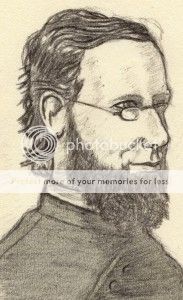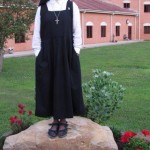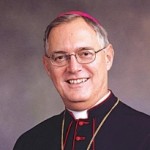
Illustration by Dr. Pat McNamara, 1993
I somehow neglected to share with you last week this very interesting profile of a very interesting Catholic priest who had an profound impact on the faith in America.
Dr. Pat McNamara writes about the Vibrant, Active Piety of Fr. Isaac Hecker, yes, Hecker like the flour that is currently in my cabinet. That family:
Early 19th-century America was an exciting time, an age of reform. Known as “the era of the common man,” it saw a movement toward greater democratization. It witnessed the rise of Transcendentalism, the creation of utopian communities like Oneida and Brook Farm, the birth of the feminist movement, and the growth of abolitionism. In the area of religion, it was an era of intensive questioning and spiritual searching.
One of those seekers was a young New Yorker named Isaac Hecker (1819-1888), whose spiritual journey led him from politics to Transcendentalism and Brook Farm, and ultimately to the Catholic Church. It led to friendships with Henry David Thoreau and Ralph Waldo Emerson. It led him to conclude that Catholicism alone fully met the day’s needs, spiritual and social, and as a priest he dedicated his life to the conversion of America.
Born in Manhattan to a German-American family, Isaac Thomas Hecker was baptized Lutheran. His formal schooling was minimal, and he worked in the family bakery (Hecker Flour is still found on supermarket shelves). His early work in political organizing disillusioned him, and contact with reformer Orestes Brownson convinced him that true reform, social and political, needed a religious underpinning.
This was the beginning of his spiritual journey. In early 1842 he had what he described as a “vision” that left him “unconscious of anything but pure love and joy.” It was a turning point in his life. At Brook Farm he mingled freely with some of the day’s leading intellectuals, but he was spiritually unsatisfied, and he turned to traditional Christianity for answers.
[…]
In 1858, Hecker and four confreres left the Redemptorists to form the Missionary Society of St. Paul the Apostle, known as the Paulists. All converts, they were an impressive group: George Deshon was a West Pointer and friend of Ulysses S. Grant; Clarence Walworth was considered the nation’s finest Catholic preacher; Augustine Hewit, the grandson of a senator, was an accomplished writer; Francis Asbury Baker had been a prominent minister in Baltimore. Together they would evangelize America. Hecker wrote: “I feel like . . . adopting one word as our motto — CONQUER!”
You’ll want to read it all. Fascinating fellow.
Pat McNamara is, of course, the historian and archivist who also runs McNamara’s blog. He’s always got some interesting tidbit to gnaw on; here is another piece that is fascinating!











